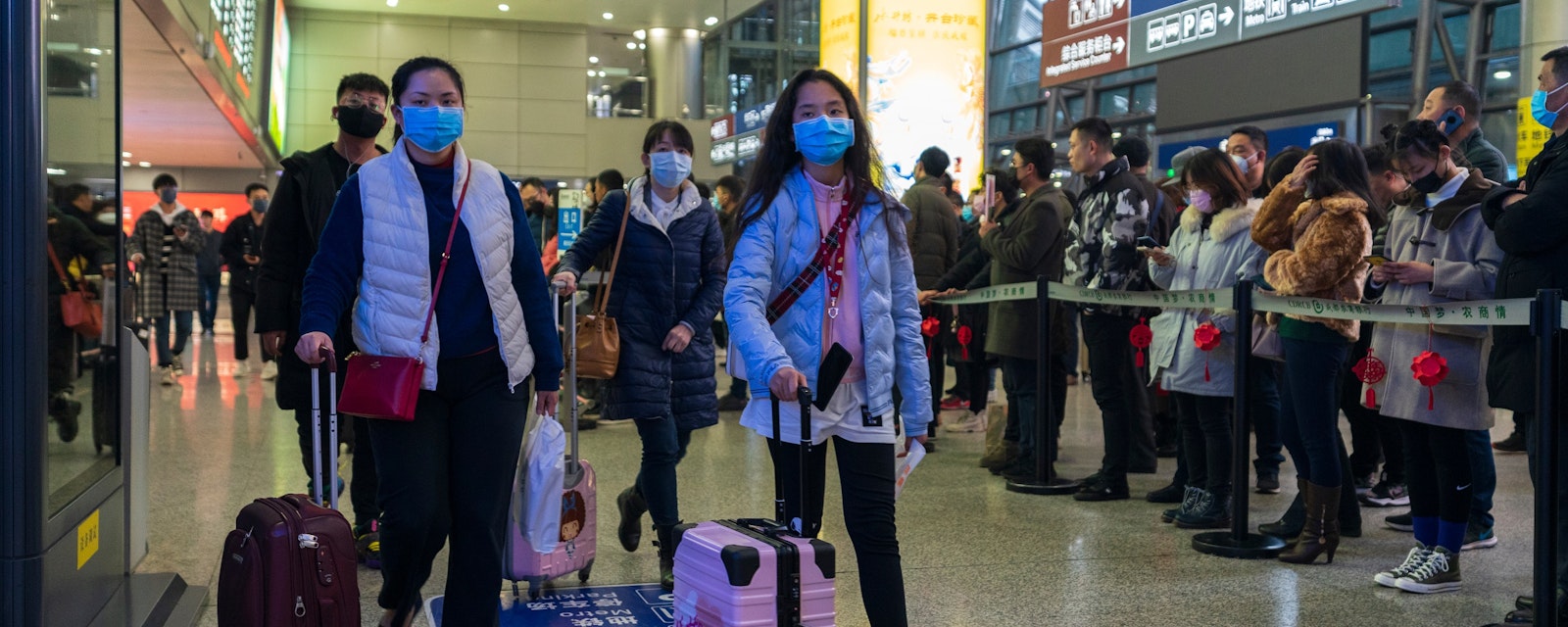China is employing harsh measures to combat a rise in imported Covid-19 infections, which now outnumber local transmissions. Diplomats from African countries have issued formal complaints about racist treatment of nationals of African countries in China, but African leaders will ultimately be reluctant to antagonize Beijing. Restrictive policies and rising anti-foreign sentiment may cause some expatriates to leave China permanently, forcing multinational companies to increase reliance on local staff.
With domestic transmission of Covid-19 largely under control, the focus of China's virus control efforts has shifted to imported infections. This focus has led not only to new restrictions on foreign visitors but also to widespread complaints about discrimination against long-term foreign residents, especially against people of African descent. Anger at China's treatment of foreigners risks undermining Beijing's attempts to earn international goodwill from its success in controlling its domestic outbreak and provisions of aid to affected countries. If ill-treatment persists, some foreign business people and other expatriates may decide not to return to China.
Imported cases far outnumber local infections
Imported cases of Covid-19 are now the main contributor to new infections in China, and the problem is worsening. Of 108 new coronavirus cases on 12 April – the highest one-day tally in over a month – imported cases accounted for 98. A flight from Moscow to Shanghai on 10 April contained 51 Chinese nationals who tested positive. A Chinese foreign ministry official said in late March that 90% of “imported” cases were returning Chinese passport holders. Most non-Chinese nationals have been unable to enter China since the government imposed a travel ban that prevented even those holding valid visas issued before 26 March from entering. Foreign airlines have been allowed only one passenger flight to China per week since that date.
With commercial flights largely unavailable, land borders have become another source of imported infections. Some 100 such infections have arrived through the border between Siberia and northeast China's Heilongjiang province since the beginning of April. The Chinese border town of Suifenhe in Heilongjiang has imposed a Wuhan-style lockdown to contain the outbreak, while the provincial capital of Harbin is mandating 28 days of quarantine for all foreign arrivals.
China-Africa relations under stress
Reports of widespread discrimination against people of African descent in the southeastern export hub of Guangzhou are threatening to damage relations between China and Africa. Nationals of African countries have reportedly been evicted from homes and refused entry to hotels and other businesses. A group of African ambassadors wrote to China's foreign minister, and the African Union (AU) summoned China's ambassador in Addis Ababa. The US consulate in Guangzhou issued an official alert on 11 April warning of increased discrimination against African-Americans.
Discriminatory treatment of nationals from African countries could undermine China’s pandemic diplomacy in Africa and Beijing's efforts to gain diplomatic influence at the expense of Western countries. Incidents of racism may be seen as evidence that China does not view African countries as equal partners in development but harbors racist attitudes similar to former colonial powers.The proliferation of reports and footage of incidents on social media creates bottom-up pressure on African leaders to confront the Chinese government in an unusually publish fashion. It also creates the risk of a social backlash against Chinese nationals across the continent. So far this backlash has not been widespread, despite reciprocal concerns over infections imported from China.
Nevertheless, African leaders will likely tread carefully in confronting China diplomatically. African leaders must balance grievances over ill-treatment against both immediate and long-term strategic needs, including aid, trade, investment, and debt. African countries need immediate advice and material aid. The AU and individual countries have so far received more pandemic aid from the Chinese government and groups like Huawei and the Jack Ma Foundation than from many Western partners.
China will play a key role in emerging efforts by African leaders to obtain health support, economic stimulus, and debt relief. At this week’s G20, IMF, and World Bank meetings, African leaders will propose emergency funding and debt relief. Given China's status as the largest bilateral lender to many countries in sub-Saharan Africa, Beijing will be a crucial actor in any potential debt forgiveness or payment moratorium. African leaders may therefore hesitate to escalate the racism issue further, unless they calculate that doing so could help to extract financial concessions from Beijing.
'New normal' for China expatriates?
As previously discussed, the increase in imported infections has led to a rise in xenophobic and chauvinist sentiment in China that goes beyond specific government policies. Online misinformation and statements by some Chinese diplomats have persuaded many Chinese citizens that the virus originated outside China. Expatriates of various racial backgrounds report facing insults and harassment in public and refusal of entry to hotels and retail stores. Other would-be expatriates are not even able to enter China due to the travel ban.
The result of these difficulties could be that many former expatriates who left during the outbreak never return to China, while those in country seek to leave. Even before the epidemic, some expatriates perceived that the environment for foreigners was growing less hospitable. This perception was due to increased geopolitical tensions as well as more mundane factors such as the rising cost of living. Many multinational companies have long sought to localize their operations by reducing reliance on foreign executives. The latest tensions may accelerate these trends.




